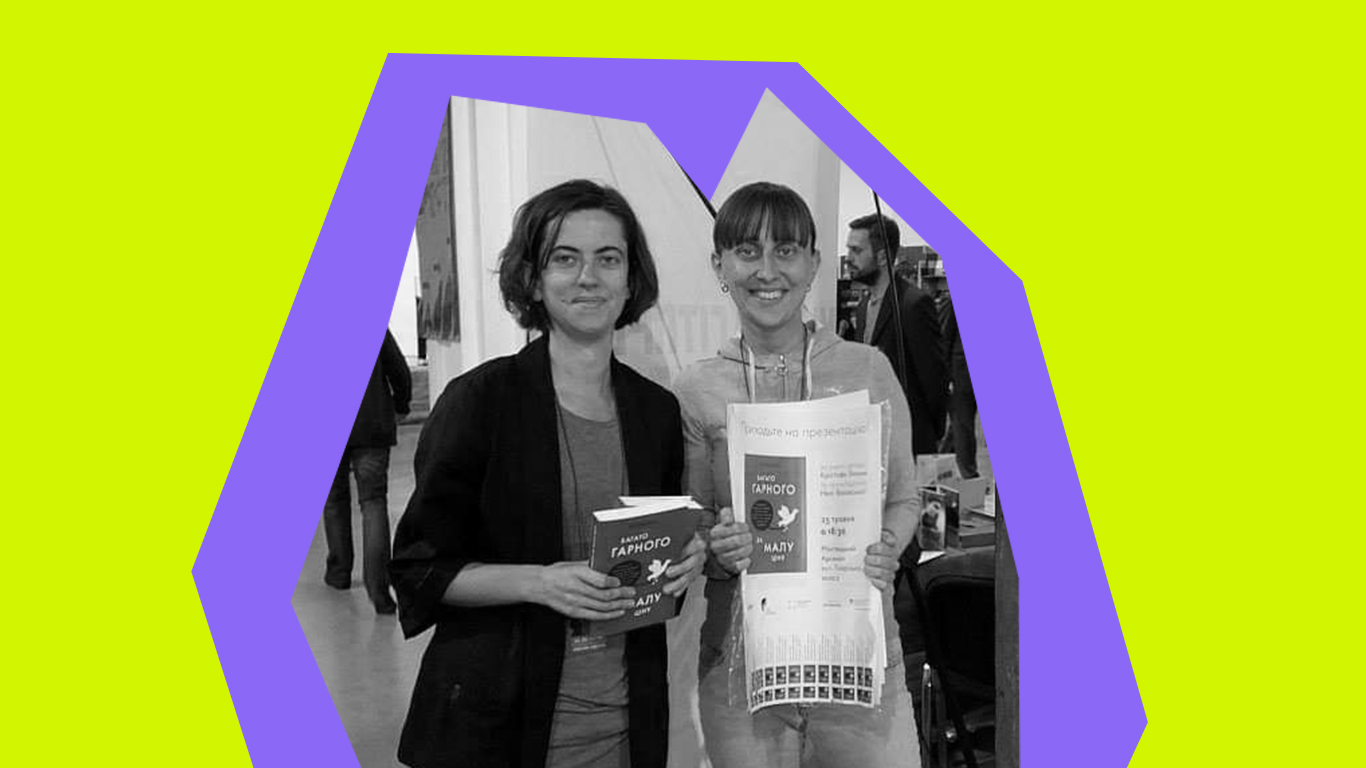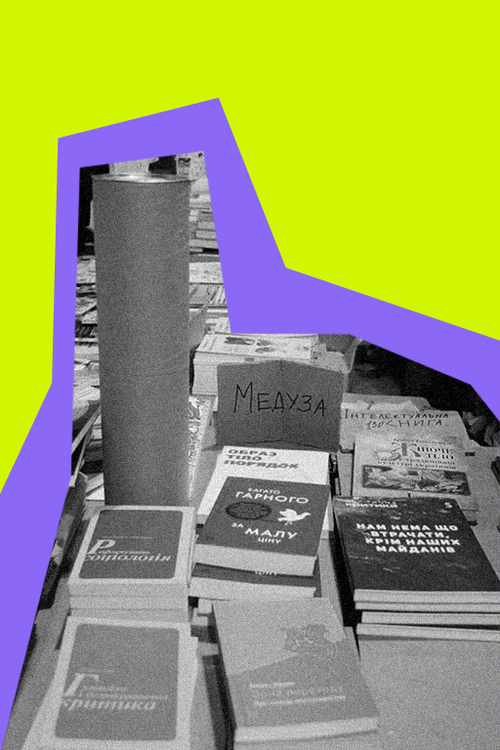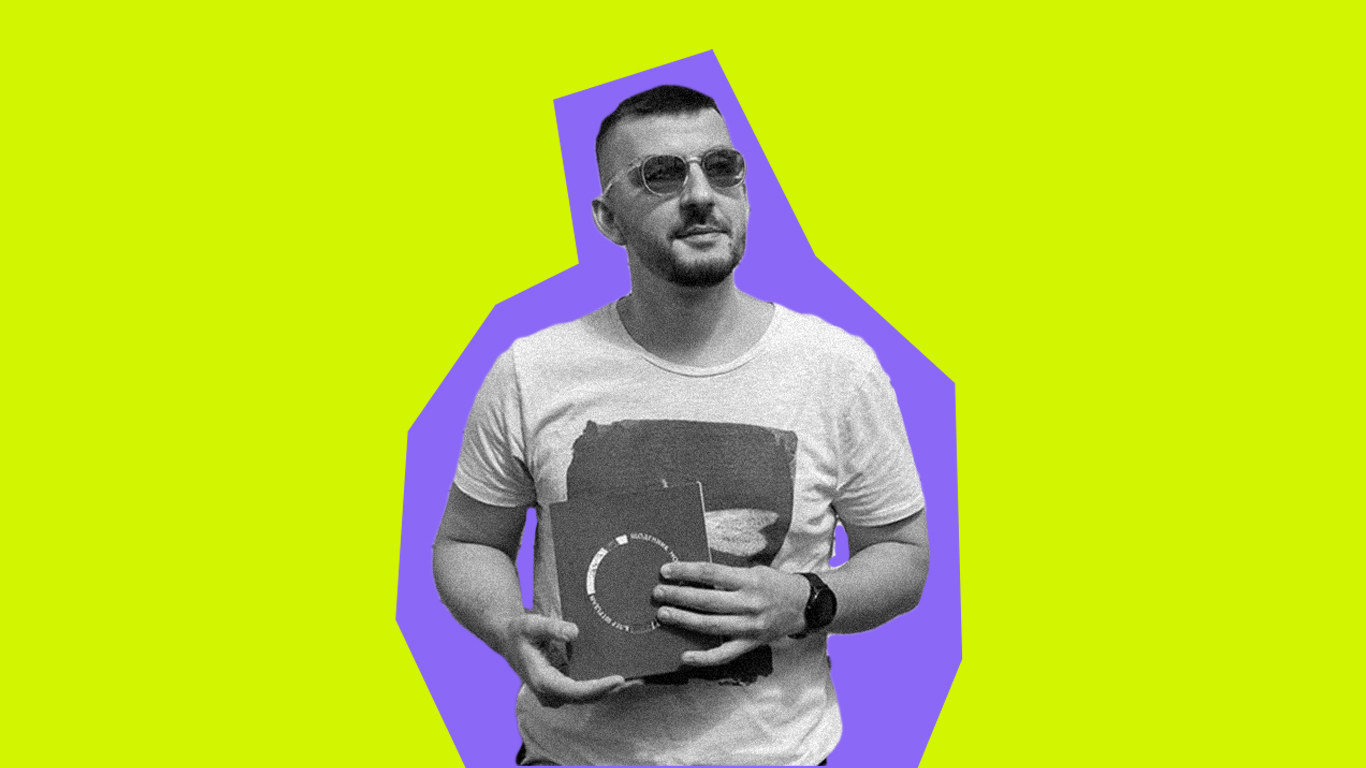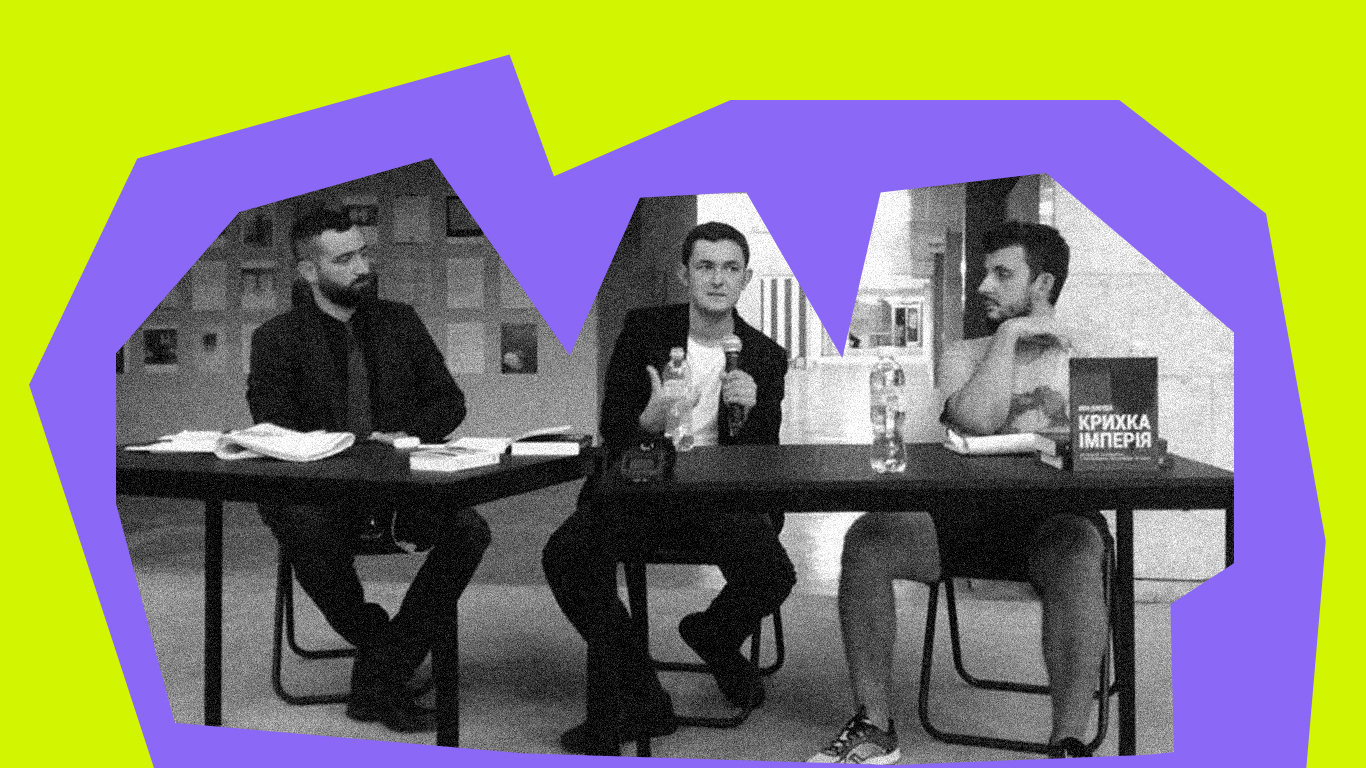Book activism: how the Medusa independent publishing project is organised

If you want to publish books, how can you venture into this? Where to look for money? Why should a book be not only interesting but also visually appealing? We asked Kateryna Mishchenko, the founder of the Medusa publishing project, which received a Translation Grant from the House of Europe.
Medusa is an independent publishing project specialising in intellectual literature. The publishing house’s collection ranges from contemporary literature books on urbanism, war, the Holocaust, and research works on Russia to the classic philosophical works by Pierre Bourdieu and Edward Said. In total, there are 17 books. Not many, compared to big publishing houses, but even this was hard to believe back in 2013 when the project just started.
At that time, there was a community of print media, such as Prostory, Politychna Krytyka, and Commons. Its participants — young people relating to cultural studies, literary studies, and sociology — were also the connoisseurs of translation. They translated excerpts from texts for publications and discussed how best to do so. Among them was Kateryna Mishchenko, the editor of Prostory and the future founder of Medusa.
Back then, it was Kateryna’s first attempt at publishing her translation, but she could not find common ground with the publisher. This is how the idea to create a publishing house arose, in which everyone could publish their full texts. “We intended to become a platform for colleagues and like-minded people who wanted to publish something, but could not find a publisher for this, or wanted the book to have a beautiful design,” says Kateryna.
The idea worked: by 2014, they started to actively publish books. But then, the Revolution of Dignity came, and everyone changed their priorities. However, three of them were ready to continue. This is how Kateryna Mishchenko, Anastasiia Riabchuk and Stanislav Menzelevskyi formed Medusa.
About the name and mission
The name of the publishing house was suggested by Kateryna. “Medusa is a visual image that makes people numb. For us, it is also a thought that forces you to confront something that you did not know, did not feel, and did not accept earlier. We want the book to change a person’s views,” explains Kateryna.
Students, researchers, and representatives of the cultural sphere are the main target audience of Medusa. The publishers see their goal in taking an active part in the intellectual life of Ukraine and publishing books that develop discourse.

About book activism
The publishing house’s team consists of three people. Every year, they publish two or three books. “We have a common vision of what to do and separate profiles. We implement projects by turns: someone takes on the main function, while others help them,” says Kateryna Mishchenko. Editors, proofreaders, and designers are involved in each project.
All the team members have other jobs. Katia, Nastia, and Stanislav consider book publishing a manifestation of activism and a social contribution to the development of the humanitarian sphere. “We did not aim to create a business model. Our project is non-profit. Thanks to grants, we can pay for translation, literary editing, and printing, and set lower prices. It is important for us that a person could afford a book, for which they cannot pay several hundred hryvnias.” The publishing house does not keep its profit to itself. It invests all earned funds in the following projects and public events.
Where to look for funding for books
Most of Medusa’s books are non-fiction translations. This affects the cost of books and the search for funds. “Publishing a translation is much more expensive than publishing an author’s book. A translated book published in Kyiv costs an average of EUR 5,000,” says Kateryna.
The publishing house has several proven ways of funding: support from foundations and cultural institutes, collaboration with professors who have a budget for publications, and scholarships from the Institute for Human Sciences in Vienna. “Literary translations are handled by many programmes, and non-fiction translations can be supported only by the Institute for Human Sciences in Vienna, the House of Europe and, if it is about a German translation, by the Goethe-Institut.”
“We are looking for grants to pay decent fees. We could avoid a literary editor, not invest much in design or publish our books in an unknown place, but then we would lose our quality. In addition, it is important for us how everyone involved in the project feels: whether they are satisfied with the salary, or feel involved in the meanings contained in the book.”

About the passion to publish books and the spirit of the time
Medusa published two books at its own expense. This is how Ben Judah’s “Fragile Empire: How Russia Fell In and Out of Love with Vladimir Putin” and Timothy Snyder’s “On Tyranny: Twenty Lessons from the Twentieth Century” came to be. If the first one was essential to society at the beginning of the hybrid war, the second one was published because of passion.
“We have just finished “Black Earth: The Holocaust as History and Warning” by Timothy Snyder — a huge project, a difficult one. And suddenly Timothy’s manager wrote to us. She said that they had received a request for a translation of “On Tyranny” from another publishing house, but they could give it to us. When I heard that, it felt as if we had published a huge book, and now someone, on the wave of interest in it, would translate the thin “Tyranny” book.
“At that time,” continues Kateryna. “I just gave birth to a baby, had a lot to do, and did not understand at all what was happening around. But I replied that we would take this book. We quickly translated and edited it, and even received the award for best book design.
It was 2017. Back then, there was a gloomy political situation: stagnation, reactionary and right-wing tendencies. And we wanted to ‘hint’ that something needs to be done about it. I know that “On Tyranny” was even presented to Arsen Avakov on his birthday, and the last 150 copies were bought by the Lviv City Council.”
About the importance of book design
Medusa’s books are consistently shortlisted for the Best Book Design within the Book Arsenal Festival, and their minimalist covers stand out among others on bookstore shelves.
Kateryna says that they pay particular attention to the visual component from the very beginning: “Design communicates with people, and this form of dialogue with readers is very important for us. There is a lot of discussions today about what a book should look like. It seems to us that it should speak to the reader at all levels.”

As for the designers with whom the publishing house cooperates, they are chosen depending on the book. “For example, I like to do feminist projects with Uliana Bychenkova, because she has an interesting visual approach to such things. We work with Mykola Leonovych on historical books. He is very attentive and strict in his work. Knowing a person’s tastes and preferences, we think which book to offer them,” comments Kateryna Mishchenko.
About inspiration
Medusa is inspired by Dutch and German design, as well as small and not-so-small publishing houses from abroad. Among their foreign colleagues, Kateryna singles out Verso Books and Spector Books. The first publishing house impresses with a selection of works by left-wing authors: from classics to little-known writers from colonial countries.
“I like Spector Books from a conceptual point of view,” tells Kateryna. “Since they work with very different authors and artists, their books look like intellectualised contemporary art. Once, I visited them and was offered to choose a book as a gift. I reached for “Cloud Studios”. This is such a large trilingual book, which collects various reflections on the clouds: photos and texts of the pilot who once flew and looked at the clouds. Well, what is this genre? I like that the experiment already happens when you just think what kind of book is this.”
About ambitions and motivation
In its eight years of existence, Medusa is still a small project. At the same time, the publishing house has its bestsellers, awards for the best design, and a community of readers who will find their stand even in the most remote corner of the Book Arsenal Fair.

“I want the publishing house to develop, but first of all to prepare more cool books. How much we will earn on this is a secondary question. It would be great to launch a children’s series and to collaborate with artists,” — Kateryna Mishchenko says about her plans for the future.
And she adds: “I am motivated by the fact that there are so many interesting texts that need to be published. Working on the text and layout is so exciting! And then, when strangers approve of your book, you realise that you are doing something important.”
Text: Nadiia Railko


